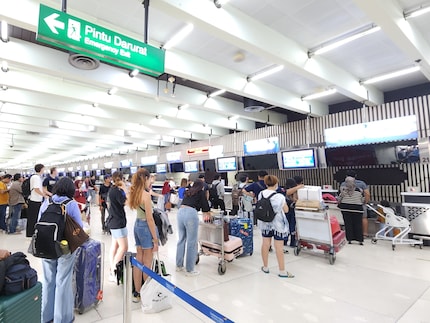
The International Civil Aviation Organisation is planning a digital "Journey Pass" for air travel
International air travel could be facing the biggest change in 50 years. The International Civil Aviation Organisation wants to replace traditional boarding passes and check-ins with biometric data with a digital "Journey Pass".
The International Civil Aviation Organisation (ICAO) is planning a far-reaching change in international travel: with the so-called «Journey-Pass», a digital system is to be introduced in future to replace traditional boarding passes and manual check-ins. This was first reported by the British daily newspaper The Times. At the centre of this is the use of biometric facial recognition technology - a step that should not only improve convenience and efficiency, but also raise security standards.
Digital identity instead of physical documents
The «Journey Pass» is based on the principle of a digitally stored travel identity (Digital Travel Credentials, or DTC for short), which combines passenger data, travel details and biometric features in a single platform. In future, travellers will be able to confirm their identity digitally before arriving at the airport - for example via a smartphone app or an online portal. At the airport itself, facial recognition will then replace the usual control mechanisms such as passport control, baggage drop-off and boarding with a physical boarding pass.
The ICAO specified the concept of digital travel documents in an official document from June 2024, in which the Digital Travel Credential (DTC) is described as a central element. This type of digital ID consists of two components: a virtual component (DTC Virtual Component, DTC-VC), which is stored on mobile devices, for example, and a physical component (DTC Physical Component, DTC-PC), which can also serve as a backup or additional proof of identity.
Potential for greater efficiency
According to the ICAO, the «Journey Pass» could significantly speed up processes at airports. Queues at check-in counters, document checks at various checkpoints and the traditional boarding process could be largely automated. Baggage drop-off and immigration formalities could also be seamlessly integrated into the system, which not only saves time but also reduces the risk of human error. However, this could open the door to technical errors.
Some countries, including Singapore, the United Arab Emirates and the Netherlands, are already testing comparable technologies as part of national pilot projects. The ICAO now wants to pool this experience and use it as the basis for a global solution.
Lufthansa tests biometric solutions
The Lufthansa Group is also actively involved in the development and testing of biometric technologies. For several years now the airline has been testing biometric boarding procedures at selected airports, including Frankfurt and Munich. Passengers can identify themselves using a facial scan in order to pass through security checks, lounge access or boarding the aircraft more quickly and without a physical boarding pass.
These procedures are based on voluntary registration and link biometric data with flight bookings and travel documents. The face-based procedures not only speed up processes, but also reduce physical contact - an advantage that has become particularly important since the coronavirus pandemic.
Data protection and legal challenges
Despite the technological possibilities, data protection and data sovereignty remain key issues. Biometric data is considered particularly sensitive as it is unchangeable and can have serious consequences if misused. The ICAO emphasises that the protection of personal data is a top priority. According to the organisation, the «Journey-Pass» should be based on principles of data minimisation, transparency and decentralised storage, with users retaining control over their information at all times.

Source: Ayuluthfiani / Shutterstock
Introduction still open
A concrete timetable for the nationwide introduction is not yet available. However, the ICAO has announced that it will be gradually implementing its own pilot projects at selected airports over the coming years. The focus will be on technical feasibility, user acceptance and legal feasibility. Only on the basis of these results is a worldwide introduction conceivable.
The «Journey Pass» could usher in a fundamental change in global air transport in the long term. While traditional travel documents will take a back seat in future, the digital identity is set to become the central entry ticket to the world of travel. However, whether the system can establish itself internationally depends largely on cooperation between states, technology service providers and civil society.
My interests are varied, I just like to enjoy life. Always on the lookout for news about darts, gaming, films and series.